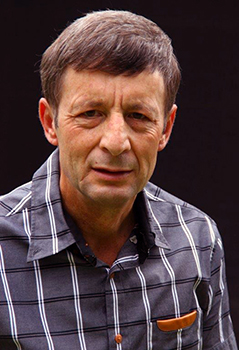Latest News Archive
Please select Category, Year, and then Month to display items
04 April 2024
|
Story Lunga Luthuli
|
Photo SUPPLIED
 Dr Juliet Kamwendo champions gender-inclusive climate action in Africa. Her expertise at the recently held AFR100 workshop highlighted vital steps towards sustainable and equitable development.
Dr Juliet Kamwendo champions gender-inclusive climate action in Africa. Her expertise at the recently held AFR100 workshop highlighted vital steps towards sustainable and equitable development.
Dr Juliet Kamwendo, Lecturer and Programme Director for Gender Studies in the Centre for Gender and Africa Studies at the University of the Free State, is spearheading efforts to integrate gender considerations into Africa's climate restoration agenda. Reflecting on her involvement, Dr Kamwendo stated, "This is particularly crucial, as women make up almost 50% of the population in Africa, and the depletion and degradation of land affect them disproportionately."
She recently served as a gender expert at the AUDA-NEPAD AFR100 workshop in Ouagadougou, Burkina Faso, from 25 to 29 March 2024. This initiative aims to restore forests and degraded land across Africa by 2030, with a focus on gender equality.
The workshop emphasised the integration of gender perspectives into the AFR100 project, acknowledging the disproportionate impact of land degradation on women. Dr Kamwendo's expertise highlighted the need to empower women in climate change interventions, addressing existing gender inequalities exacerbated by environmental degradation.
“Women – who are primarily responsible for household food security and water provision – bear the brunt of environmental degradation, leading to increased workloads, reduced income opportunities, and heightened vulnerability to climate-related disasters. Furthermore, the loss of forest cover and biodiversity further exacerbates the challenges faced by women, particularly in rural areas where they depend heavily on natural resources for their livelihoods,” added Dr Kamwendo.
Her participation highlights academia's crucial role in fostering inclusive and sustainable development, emphasising interdisciplinary collaboration to tackle complex environmental challenges. Through initiatives such as AFR100, stakeholders are working towards a more resilient and gender-responsive future for Africa.
Prof Luyt says young researchers should not allow circumstances to determine their future
2016-02-01

Prof Riaan Luyt, an NRF B-rated researcher
Photo: Supplied |
Young researchers, who spend their life at a disadvantaged and rural campus like the University of the Free State’s Qwaqwa Campus, should not be deterred from achieving their dreams.
This is the view of Prof Riaan Luyt, former Assistant Dean in the Faculty of Natural and Agricultural Sciences, who achieved his B-rating by the National Research Foundation (NRF) late in 2015. This was by far the highest-ever rating on the Qwaqwa Campus.
“When I moved to the Qwaqwa Campus many years ago, having had the opportunity to do a post-doctoral fellowship in Polymer Science at the Leeds University in the United Kingdom, I was determined to get the Department of Chemistry off the ground, and to embark on serious research,” said Prof Luyt, who is now the Affiliated Professor in the Department of Chemistry and Research Associate Professor at the Centre for Advanced Materials, based at Qatar University.
“It was through sheer determination that I managed to obtain enough funds to equip a decent research laboratory. There were many obstacles over the years, but I managed to attract more and more postgraduate students and published more,” he said.
At first, Prof Luyt was not successful with his NRF-rating applications.
“My first couple of attempts to get rated produced no success. I was then awarded a C3-rating, which was later followed by C2 and then C1,” he added. “Getting a B-rating is the highlight of my research career. It shows that it can be done. Young researchers should not allow their past or present circumstances, or their work environment to stand on their way,” said Prof Luyt, who has supervised 38 master’s and doctoral students as well as 11 postdoctoral fellows. He has also published 185 papers in international and accredited journals.
Although abroad, Prof Luyt will continue to supervise eight postgraduate students at the Qwaqwa Campus.